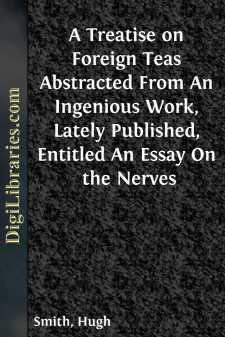Categories
- Antiques & Collectibles 13
- Architecture 36
- Art 48
- Bibles 22
- Biography & Autobiography 813
- Body, Mind & Spirit 142
- Business & Economics 28
- Children's Books 16
- Children's Fiction 13
- Computers 4
- Cooking 94
- Crafts & Hobbies 4
- Drama 346
- Education 46
- Family & Relationships 57
- Fiction 11829
- Games 19
- Gardening 17
- Health & Fitness 34
- History 1377
- House & Home 1
- Humor 147
- Juvenile Fiction 1873
- Juvenile Nonfiction 202
- Language Arts & Disciplines 88
- Law 16
- Literary Collections 686
- Literary Criticism 179
- Mathematics 13
- Medical 41
- Music 40
- Nature 179
- Non-Classifiable 1768
- Performing Arts 7
- Periodicals 1453
- Philosophy 64
- Photography 2
- Poetry 896
- Political Science 203
- Psychology 42
- Reference 154
- Religion 513
- Science 126
- Self-Help 84
- Social Science 81
- Sports & Recreation 34
- Study Aids 3
- Technology & Engineering 59
- Transportation 23
- Travel 463
- True Crime 29
A Treatise on Foreign Teas Abstracted From An Ingenious Work, Lately Published, Entitled An Essay On the Nerves
by: Hugh Smith
Categories:
Description:
Excerpt
INTRODUCTION.
As two of the four meals that form our daily subsistence are chiefly composed of tea, an enquiry into what kind is the most salutary must be as necessary as it may prove interesting and beneficial; for, on the choice of proper or improper tea must greatly depend the health or disease of the public in general. To this may be attributed the constitution being either preserved from that innumerable train of afflictions, which arise from too great a relaxation of the nervous system by acute distempers, misfortunes, &c. or being so debilitated by excessive drinking of India Tea, as to render it alone the prey of melancholy, palsies, epilepsies, night-mares, swoonings, flatulencies, low spirits, hysteric and hypochondriacal affections. For tea that is pernicious is not only poison to those who, from any cause of corporal debility or mental affliction, are liable to the above diseases;—but it is also too frequently found to render the most healthy victims of these alarming complaints. And as nervous disorders are the most complicated in their distressing circumstances, the greater care should be taken to avoid such aliments as produce them, as well as to choose those which are the most proper for their relief and prevention. Those who are now suffering from the inconsiderate use of improper tea, what pitiable objects of distress and disease do they not represent for the caution of those who may timely preserve themselves? Nervous disorders are the most formidable, by being the most numerous in their attacks upon the human frame. Every moment, comparatively speaking, produces some new distress of mind or body. The imagination cannot avoid the horrors of its own creation, while the memory is harrassed with the shadows of departed pleasures, which serve but to encrease the pain of existing torments. All the endearments of life are vanished to the poor wretch who sees himself surrounded by the spectres of dismay, terror, despondency, and melancholy. And such is but the thousandth part of the afflictions that are to be avoided or produced by the choice of the prevailing beverage of tea. Not only the innumerable train of nervous afflictions, but all those disorders that arise from an improper temperature of the fluids, may be produced from the action, corrosion, and stimulation of pernicious teas. In proportion to the state of the fluids, in particular constitutions, they may either prove too relaxing or astringent, too condensing or attenuating, and too acrid or viscid; for India teas, that to some constitutions are very diluting, may produce in others contrary effects: therefore such should be chosen as possess a combination of quality that may render them, as nearly as possible, to a general specific. But this cannot be well expected where one single ingredient is used, and that is distinguished for its particular qualities, which, if wholesome, can only be such to those whose fluids are so, by nature or circumstances, as to require such a particular assistant; for to every other state of the fluids they must be pernicious....


